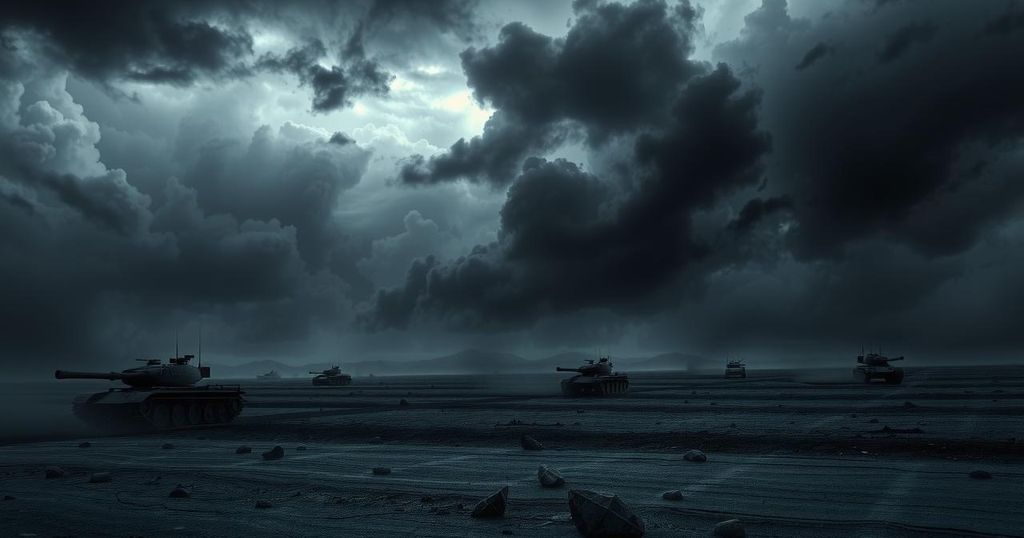World news
AC, AFRICA, ASIA, BASSIKOUNOU, CHINA, EUROPE/ASIA, EXTREMISM, HÉNI NSAI, ISLAMIC STATE, MA, MALI, MAURITANIA, MILITARY, MOSCOW, PROJECT, PUTIN, RUSSIA, SECURITY, TERRORISM, THE WASHINGTON POST, TIMBUKTU, VLADIMIR PUTIN, WAGNER, WAR, WASHINGTON POST, WEST AFRICA, YE
David O'Sullivan
0 Comments
Wagner Mercenaries’ Campaign of Terror in Mali: A Grave Humanitarian Crisis
Russia’s Wagner mercenaries are perpetrating widespread violence in Mali, leading to civilian massacres and an escalating refugee crisis. The collaboration between Wagner and Mali’s military junta has resulted in indiscriminate attacks on non-combatants, with many fleeing to Mauritania for safety. Reports indicate a significant increase in brutality since Wagner’s involvement, raising urgent concerns for humanitarian intervention and the protection of civilians in the region.
BASSIKOUNOU, Mauritania — Families are fleeing to this borderland, sharing harrowing tales of the Russian Wagner mercenaries terrorizing them in Mali. These mercenaries are accused of massacring civilians and incinerating villages, which has exacerbated an escalating refugee crisis in the region.
Kossi ag Mohamed, a herder from the Timbuktu region, recounts the devastation brought by Wagner, describing it as a “catastrophe.” Following a coup in 2020, Mali’s military junta has been collaborating with Wagner, whose presence has proliferated despite uncertainty surrounding its future after the death of its founder, Yevgeniy Prigozhin.
The partnership with Wagner purportedly aims to combat Tuareg separatists and jihadist groups. However, the primary victims have been civilians, who suffer indiscriminately from the group’s violent tactics. Reports from experts indicate that Wagner’s brutal approach includes attacking transport convoys and targeting civilians for death and looting.
Héni Nsaibia, an analyst at ACLED, emphasizes the indiscriminate nature of the violence, which has resulted in the deaths of many innocent people, with 925 civilians reported killed in 2022 alone. Reports suggest that the Malian army has also committed human rights abuses in conjunction with Wagner, further increasing local fear and unrest.
The refugee crisis in the region has intensified; the Mbera camp in Mauritania now hosts approximately 149,000 people. Many of the newcomers attribute their flight to the violence instigated by the Malian military and Wagner forces, not Islamist militants. Civilians are often wrongfully targeted, creating an atmosphere of pervasive fear among the populace.
Accounts of brutal attacks include home invasions by Wagner mercenaries, where women have reported acts of sexual violence. Aïssata Kelli spoke about harrowing experiences of gunmen raiding her home, instilling terror among the women in her community. Similar accounts reveal that men are predominantly targeted, leaving women and children to fend for themselves.
Wagner’s activities have spread northward in Mali, intensifying conflicts with Tuareg rebels. While some military successes have been achieved, the increasingly violent tactics used against civilians have drawn international scrutiny. Reports indicate that the group has expanded recruitment and military operations, further complicating the security dynamics in Mali.
As displaced families seek safety across the border into Mauritania, they face dire conditions. Many refugees lack adequate shelter and resources to survive. The horrors experienced by these families reflect the grim reality of ongoing violence, primarily driven by Wagner mercenaries and the Malian military, raising pressing humanitarian concerns that necessitate immediate attention.
This ongoing crisis underscores the need for international intervention and support to protect civilians and stabilize the region, which continues to see escalating violence and suffering.
In conclusion, the situation in Mali, exacerbated by the actions of Wagner mercenaries, has led to widespread terror, civilian massacres, and a significant refugee crisis. The partnership between the mercenaries and the Malian military has predominantly targeted innocent civilians, resulting in substantial human rights violations. As violence persists, the urgent need for international awareness and intervention becomes pivotal to address the humanitarian catastrophe unfolding in the region.
Original Source: www.washingtonpost.com




Post Comment